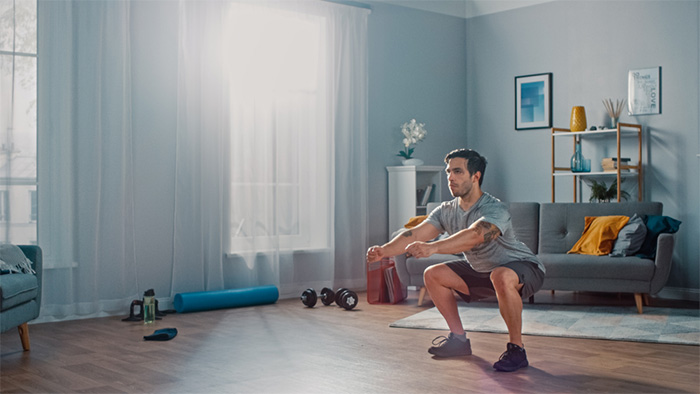Self-Care for Nurses: 8 Ways to Feel Better During the Pandemic
Self-care for nurses is tough in the best of times, and the pandemic has made it even harder to put your own health first. If you’re struggling with self-care, you’re definitely not the only one in these trying times. Follow these eight steps to take care of yourself when you’re not taking care of your patients:
Stay hydrated and eat well.
During a stressful shift, it’s all too easy to go hours without eating or drinking. Set a reminder (or create automatic reminders) to prompt you to drink water throughout the day. Prioritize healthy food that doesn’t cause any digestive issues. If you know that common triggers like tomatoes and dairy upset your tummy, try to keep those to a minimum. If you start feeling shaky, try to take a short break to eat a granola bar or another snack to get your blood sugar back up.

Practice deep breathing.
Nursing was already a high-pressure field, and the coronavirus pandemic increases the stress exponentially. While you might not be able to walk away from a high-stress situation until you cool off, what you can do in the moment is take a few deep breaths. This reoxygenates your blood and brain and slows down your body systems, helping to stave off spikes of adrenaline. Make sure that you’re breathing deeply from your stomach instead of taking shallow breaths from your chest.
Take time off.
There are and will continue to be many opportunities to pick up extra shifts and overtime, especially as we head into the cold and flu season. If you can financially afford to, try to resist the temptation to take on these extra shifts. You will need the rest to recover from your normal schedule, and you won’t do patients any good if you work yourself into exhaustion. Make sure to also schedule yourself some vacation time so you can have longer breaks to look forward to.

Step away from technology.
Spending your off days doomscrolling through social media and the latest news won’t leave you refreshed—in fact, it’s quite the opposite. Try to limit the amount of time you spend on these apps, and consider taking periods of time or even whole days away from your phone. You should also watch your news consumption through other avenues, such as the TV. Trying to stay on top of every story is impossible, and at a certain point, you get diminishing returns, so set reasonable limits for yourself and then stick to them.
Stay connected with loved ones.
There is one way that you can use technology in a positive way: staying connected with loved ones. While you might normally hang out with your friends or visit your parents, with social distancing in place, that’s not really an option anymore. Rather than letting these relationships fade, make an effort to connect with them virtually through phone calls and video chats. It won’t be the same as in person, but talking and laughing with your loved ones will help you relieve stress and remind you that there’s a world outside the hospital.
Take care of your body.
Nursing shifts can be hard on you physically. You’re on your feet for 12+ hours at a time, and often walk multiple miles in a single shift. Make sure that you’re taking care of your body by wearing slip-resistant shoes and donning compression socks for nurses to support your feet and boost your circulation. If you experience a lot of swelling, propping your feet up above the level of your heart for 15 minutes at the end of a long day can help the fluids drain back towards your core and reduce pain.

Get moving.
Exercise is good for both your mental and physical health and a critical part of self-care for nurses. It builds strength, improves your cardiovascular system and releases feel-good hormones. Even just 30 minutes three times a week will help boost your mood and make you feel better. Seek out beginner-friendly activities that you can do at home with minimal equipment. There are many videos available for free on YouTube. Seek out ones from reputable trainers and brands like Popsugar Fitness.
Don’t forget your mental health.
During this pandemic, your mental health is just as vulnerable as your physical health–if not more so. If you’re feeling overwhelmed, depressed or anxious about everything that’s happening, talking with an expert therapist can give you an outlet and help you manage these feelings so they don’t take over your life. Many therapists are now offering telehealth appointments to cut down on a possible contagion, which can help give you peace of mind.
Don’t forget to take care of yourself in the midst of taking care of your patients!



